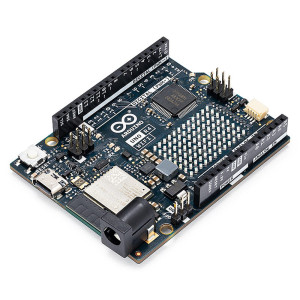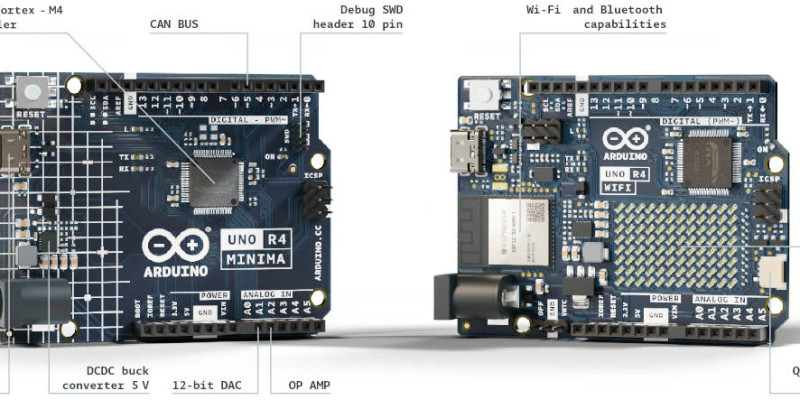
The Arduino Uno has been the go-to board for makers for well over a decade now. It's low-power low-cost approach to making revolutionised prototyping and embedded projects. However, the general format hasn't changed much since it launched in 2010. With an 8-bit 16MHz ATMega processor, 32KB of storage, and 2KB of RAM, it has enough power for smaller projects due to the low-level programming, however it could start bogging down if you try crunching numbers too hard.
After thirteen years, Arduino have finally released a substantial upgrade to the Uno. The new R4 versions of the Uno seriously improves the performance and connectivity compared to the previous version.
More Power, Same Layout
Firstly, you'll notice the board looks very similar to the Uno R3. In fact, the pin layout is the same, so exiting shields should work without any problems (other than possibly needing to update or modify libraries). The main upgrade is the CPU - swapping out the ATmega328P for a more powerful ARM Cortex-M4. The new ARM chip runs at 48 MHz with 32KB of RAM and 256KB of flash memory.
The change to ARM means that with the faster clock speed and more advanced instruction set, the code can run much faster and more efficiently enabling projects to get much bigger and computationally more expensive. The increase in RAM will be a boon for those who need to keep lots of data in RAM, such as logging sensors values for analytical computation directly on the device. Depending on the project, the R4 can be have up to 16x the performance of the R3.
New Connectivity
The first thing to mention is the transition to USB-C, which is great as all devices are becoming standardised now. You can still power the board using a barrel-jack for those projects which are not going to be connected to a computer.
The new CAN bus connectivity is also great, as is the dedicated 12-bit DAC, but the star of the show has to be the new WiFi board, which supports both WiFi and Bluetooth. Now there's no need to run daughterboards to get wireless connectivity. The only other real competitor is the Raspberry Pi Pico W, which doesn't compare to the usability of the Arduino IDE and libraries.
The Uno R4 Minima is available for $22 and the R4 Wifi is $33.
